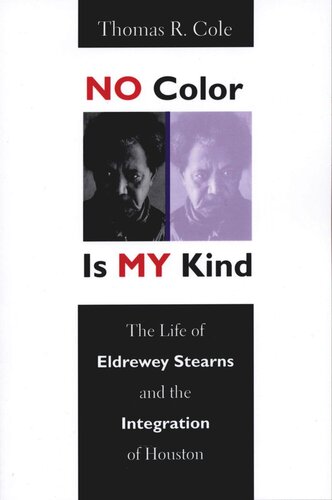

Most ebook files are in PDF format, so you can easily read them using various software such as Foxit Reader or directly on the Google Chrome browser.
Some ebook files are released by publishers in other formats such as .awz, .mobi, .epub, .fb2, etc. You may need to install specific software to read these formats on mobile/PC, such as Calibre.
Please read the tutorial at this link: https://ebookbell.com/faq
We offer FREE conversion to the popular formats you request; however, this may take some time. Therefore, right after payment, please email us, and we will try to provide the service as quickly as possible.
For some exceptional file formats or broken links (if any), please refrain from opening any disputes. Instead, email us first, and we will try to assist within a maximum of 6 hours.
EbookBell Team

4.1
30 reviewsNo Color Is My Kind is an uncommon chronicle of identity, fate, and compassion as two men—one Jewish and one African American—set out to rediscover a life lost to manic depression and alcoholism. In 1984, Thomas Cole discovered Eldrewey Stearns in a Galveston psychiatric hospital. Stearns, a fifty-two-year-old black man, complained that although he felt very important, no one understood him. Over the course of the next decade, Cole and Stearns, in a tumultuous and often painful collaboration, recovered Stearns' life before his slide into madness—as a young boy in Galveston and San Augustine and as a civil rights leader and lawyer who sparked Houston's desegregation movement between 1959 and 1963. While other southern cities rocked with violence, Houston integrated its public accommodations peacefully. In these pages appear figures such as Thurgood Marshall, Martin Luther King, Jr., Leon Jaworski, and Dan Rather, all of whom—along with Stearns—maneuvered and conspired to integrate the city quickly and calmly. Weaving the tragic story of a charismatic and deeply troubled leader into the record of a major historic event, Cole also explores his emotionally charged collaboration with Stearns. Their poignant relationship sheds powerful and healing light on contemporary race relations in America, and especially on issues of power, authority, and mental illness.